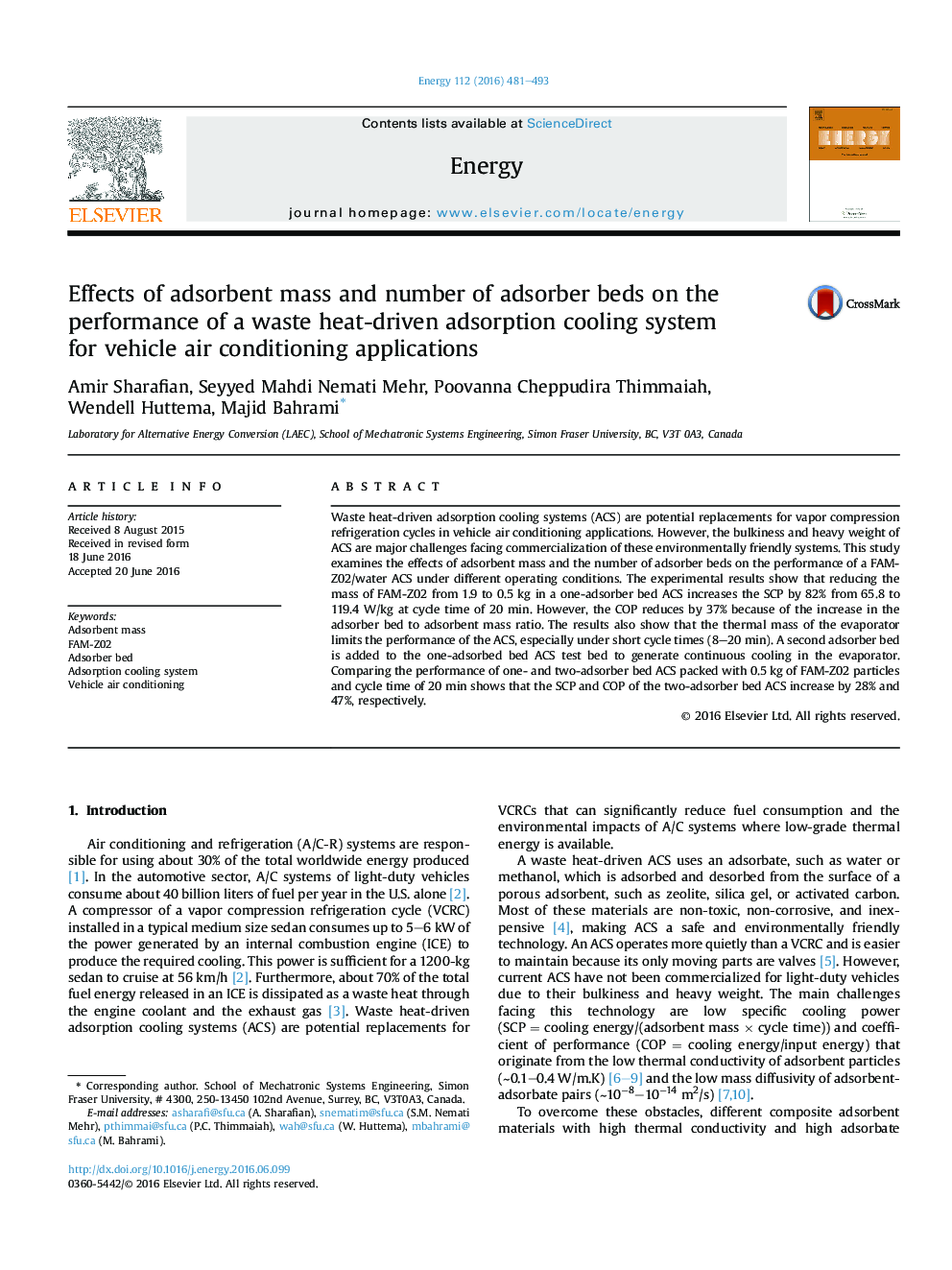| Article ID | Journal | Published Year | Pages | File Type |
|---|---|---|---|---|
| 8073016 | Energy | 2016 | 13 Pages |
Abstract
Waste heat-driven adsorption cooling systems (ACS) are potential replacements for vapor compression refrigeration cycles in vehicle air conditioning applications. However, the bulkiness and heavy weight of ACS are major challenges facing commercialization of these environmentally friendly systems. This study examines the effects of adsorbent mass and the number of adsorber beds on the performance of a FAM-Z02/water ACS under different operating conditions. The experimental results show that reducing the mass of FAM-Z02 from 1.9 to 0.5Â kg in a one-adsorber bed ACS increases the SCP by 82% from 65.8 to 119.4Â W/kg at cycle time of 20Â min. However, the COP reduces by 37% because of the increase in the adsorber bed to adsorbent mass ratio. The results also show that the thermal mass of the evaporator limits the performance of the ACS, especially under short cycle times (8-20Â min). A second adsorber bed is added to the one-adsorbed bed ACS test bed to generate continuous cooling in the evaporator. Comparing the performance of one- and two-adsorber bed ACS packed with 0.5Â kg of FAM-Z02 particles and cycle time of 20Â min shows that the SCP and COP of the two-adsorber bed ACS increase by 28% and 47%, respectively.
Related Topics
Physical Sciences and Engineering
Energy
Energy (General)
Authors
Amir Sharafian, Seyyed Mahdi Nemati Mehr, Poovanna Cheppudira Thimmaiah, Wendell Huttema, Majid Bahrami,
